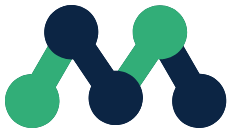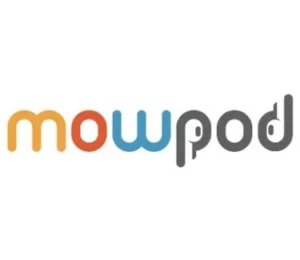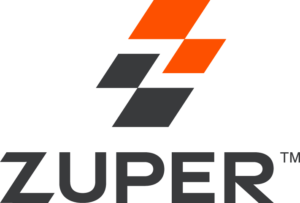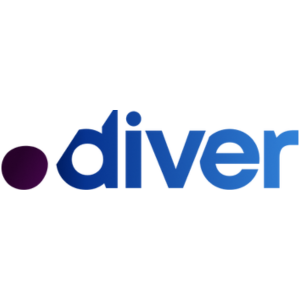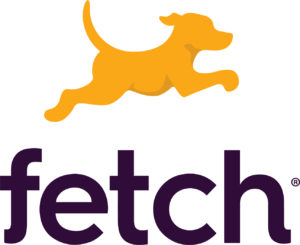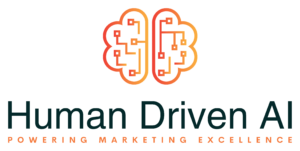Brainstorming the MarTech community — Etienne de Bruin // 7CTOs
Etienne de Bruin
7CTOs

- Part 1Building an invite-only community
- Part 2 Brainstorming the MarTech community — Etienne de Bruin // 7CTOs
Show Notes
Quotes
-
Speaker 1: (00:04)From advertising to software as a service to data across all of our programs and clients, we've seen a 55 to 65% open rate, getting brands authentically integrated into content performs better than TV advertising. Typical life span of an article is about 24 to 36 hours for reaching out to the right person with the right message and a clear call to action. That it's just a matter of timing. Welcome to the Martec podcast. A Ben J Shap LLC production in this podcast, you'll hear the stories of world-class marketers that use technology to drive business results and achieve career success. We'll on earth, the real world experiences of some of the brightest minds in the marketing and technology space. So you can learn the tools, tips, and tricks they've learned along the way. Now here's the host of the Martec podcast, Benjamin Shapiro. Speaker 2: (01:02)Welcome to the Martec podcast today. We're going to discuss the value in process for building a paid community. Joining us today is at 10 DeBruin, who is the founder and CEO of seven CTOs, which is a community that helps chief technology officers grow into world class leaders through in-person forums that connect enlighten and soundboard technology strategies yesterday at 10. And I talked about his experience building an invite only community. And today I'm going to use him as a professional sounding board and ask for some advice on how we can build a community that is specific to the MarTech industry. Okay. Here is the second part of my conversation with Etienne DeBruin CEO of seven CTOs at 10. Welcome back to the Martec podcast. Great to be here. Thank you, Benjamin. Excited to have you back on the show. This episode, I gotta be honest, feels a little grabby. Speaker 2: (01:54)It feels a little bit like it's about me because I want to pick your brain. I want to build a product very similar to one that is like what you've built for the CTO community, but I'm going to be focusing on the MarTech industry. So we want to build an invite only community for not only executives in influencers, but also for the operators in the MarTech community. And we're thinking about building this in a couple different phases. There's really three groups I'm thinking about the first one is just community members. And this is really the people that are listening to this podcast right now who are looking for educational content, professional development, and maybe even opportunities in the MarTech industry. And for us being a community member is something that we don't plan on charging for, right? This is really just give us your email address, let us know who you are. Speaker 2: (02:44)And we will provide you with gated content, things like company directories, industry, specific job boards, maybe even some premium content like courses and webinars. We're still kind of figuring out where we draw the line. I'm thinking about a second tier, which we want call the MarTech insiders, which is essentially a paid version of the free tier of our community. You get access to all this content, but it's also where you can start to interact with your peers. And the idea here is that we'll have some sort of a forum, whether it be Slack or Instagram or Facebook, or our own, our own forum, where people can ask questions and have them answered by their peer group and by experts. And that comes with a small fee. Let's call it 20 bucks a month. The group that I think really matters the most and just like seven CTOs is the executives. Speaker 2: (03:32)What I think we're going to call the MarTech council. And these are executives at MarTech companies, influencers in the MarTech space agency owners that work specifically with an on MarTech projects. And the idea here is that we want to create not only value in community, we're going to do classes similar to how you've set up your forums. Maybe it's a group of 10 people, but we also want to be able to leverage the content asset that we're developing. So not only will the people that are council members be able to get the sort of peer influence and mentorship and introductions to their other council members and other influencers. We're also going to work with them to create and syndicate their content. And to me, the secret sauce here is if you are an influencer, not only do you get to meet the other great executives, but we work with you to figure out what your story is. Speaker 2: (04:24)And we will help communicate that to the rest of the industry. And Hey, by the way, we have this whole large archive of all the people that are interested in MarTech, because they've signed up for our free tier or insider tier. I've probably already said too much. I've probably given away the secret sauce here. So everybody who's listening, we're all under friend da, please don't go start a MarTech community. Exactly like what we're doing at TN, what am I getting right. And what am I getting wrong? Is it too late to say that I own seven cmos.com? I think we're going with forums of 10, but it's not a bad domain. Are you partnering with someone to do this or is it all you it's all an in house project with me and my contract team. Okay. What is driving you to do this? You know, I had a conversation with someone yesterday who asked, well, what's the purpose of your business? Speaker 2: (05:14)And there's a larger conversation here. There are models that we're trying to replicate. One of them being seven CTOs got the principle and the core of what we're trying to accomplish. I believe that the MarTech industry is developing and that there is not a lot of interaction and community already established. So we have the, what I think is the biggest and best podcast for the MarTech community. And we want to extend the reputation and the value that we've created for our audience to benefit them, to help them, not only learn through the content, but learn from each other through community connections. Now, from a business perspective, it's a secondary source of revenue, right? We make money through Speaker 3: (05:58)our sponsorship program. We're going to charge for our community. So, you know, there's business value here too. And it's a model that I think we can replicate, not just for MarTech, but some of our other shows like our voices of search SEO show, where we might launch some other podcasts that are business and marketing related. I think the why sounds awesome. And clearly you have expertise in this space, right? Forgive my ignorance. But yeah, as far as leading marketing, identifying what's your core customer, you're one of them, right? I am a marketer and I use technology to market a business and we do it for the Martec podcast. That's really how we define MarTech here, as opposed to just the pure marketing operations stack builders. But yeah, I'd say I'm an operator, not just a talking head for the Martec podcast. I think that plan sounds amazing. Speaker 3: (06:45)You, I went the other direction, so it'll will be interesting for me to see. And of course you have this platform, which is obviously significant. So my gut response to that is what happens if you go the other way and not the progression you just described. So, and it might not be a progression. You describe three levels to me, but you described it in a way that made me feel like, okay, you're going to have this community tier people are going to join for free. They're going to get some resources and they're going to be part of this community, higher volume, lower price point, focusing on marketing operators because there's more of them. I think I know what you're going to say. And you're going to say, you should focus on the executives and the influencers first to attract the smaller group. And I agree with you, if that's where you're going. Speaker 3: (07:29)Yes, we're focusing on the council members first, which is really what I want your advice from. We're going to launch our first council here in the next few months, and we have to go beg, borrow, and steal to get our first 10 council members. Talk to me about where we're going to fall down. What did you learn? So how did I go from zero to seven apropos, previous episode when I described how I had 300 interested parties. And when I positioned a paid membership, I lost everybody and I had to go back to every single person. And re-explain the vision of where I want to go, what I'm trying to do, what the big, why was I had all kinds of objections and the people that didn't get it? I was fine with moving on to the next one. I made some pretty heavy concessions around title. Speaker 3: (08:19)I think my first seven people, maybe three of them were real CTOs. The other full were by the senior developers or there was one retired CTO. So it wasn't all the way my target market, but that gave me enough to at least say that I have a forum to have the conversations about what's working for them and what isn't working for them. So the whole, get your friends to join and try this out with you is probably the best way to do this because the unconvinced obviously is going to require a lot more social proof. And maybe you have that with your podcast. But I guess my answer to that question would be, is I would do absolutely anything to get my firsthand people, even if they are not even paying me to say that I have a counsel, we meet regularly. We represent these types of companies. Speaker 3: (09:11)That story is so much more valuable than proving that people are willing to pay for it because at some point people will start wanting to pay for it, but it might not be in the initial phase. So when you started with your initial phase, you figured out the cadence of how to get everyone not only together, but also to start creating conversations that were valuable. That's one of my biggest concerns is let's say we can go out and I think we'll be able to find 10 marketers. Obviously I've met a lot of people through the podcast and have developed a network and hopefully some authority, the MarTech space we're going to have to work hard to get 10 people. Let's say we can get over that hurdle. My concern is actually getting them to engage and build up strong enough community where they want to retain and they want to interact. Speaker 3: (10:01)You can't just roll the ball onto the court and assume the team is going to win a championship. What did you do to get people to start interacting? How did you get them to start to buy him? That is the million dollar question. And there's a very simple answer. And that is it's you, you have to set the tone, set the engagement, grinded out. They will take their cues from you. And the example that you said, the passion that you exude, I have to often tell myself to not take myself too seriously or take this organization too seriously, run with it, enjoy it. Don't get into your head about what's this person going to think if I email him for the third time or what is she going to think if I ask her to speak and she doesn't even know who I am, I just check out. Speaker 3: (10:44)And I just say, you know what this community is, and I am simply it's advocate for now to get this thing going. And that's ultimately just sheer energy and passion for the community is what drew people in. I got to go practice my dance moves. There's going to be some singing and there's gotta be some dancing. There is going to be singing and dancing. And I think if you are passionate enough and as you know, with any wife, for any company that wise, what needs to drive you when everyone says no. And honestly, when I went from 350 to zero, I was thinking, is there a floor in my product market testing? And I wasn't even thinking of it that way. I'll just thought, well, Hey, 350 people told me they want to be a part of this, but really they didn't. And I had to just have the why constantly like, listen. And then I called up the people that I felt were the most aligned with what I was trying to do. And I just had to figure out a way to get them to say, yes, we'll give it a shot. Talk to me a little bit about time management. One of my big concerns is we've got the Martec podcast. I have to create all the content here. And if we're creating a community, now I have to Speaker 2: (11:52)essentially be a council member and then also work with the rest of the councils to figure out what content we're going to create for them and how we're going to syndicate it. When you're thinking about bringing on more council members and how much time it takes, help me set some expectations. Speaker 3: (12:06)Well, one thing I did was, and this might be a different story for you is I went and found a co founder four seven CTOs because I knew the number one thing I wanted to create with my groups was empathy. And as much as it's a hot topic today, you know, eight years ago, empathy wasn't as widely used, I think in leadership and executive training. So I found someone who was able to deliver. So I found Michael soul, who I consider my co founder and he ran those forums for me. So initially for that first seven, he provided enough value around the training that I had identified as something that people would want. And again, you will be fool to say no to, Hey, I'm going to do some empathy training with six other CTOs. Do you feel like you want to be part of that? Speaker 3: (12:55)You know, if you say no to that, then you're going to have other reasons then sort of the aspirational part of that. And those other reasons are things that you can have a, so with time management or someone isn't willing to take the time, if you aren't willing to set the bar high, you're not gonna get the type of people in there that ultimately is going to help you grow the organization. You're going to find people who say yes to you for the first few months and then bail and all the work you've put into them. All the decisions you've made around their participation all goes down the toilet because they're gone. So I've learned that as much as I want person X to participate. If I can't tell her, listen, the money is the least of your concerns. You are going to be required to be at forum meetings four to five hours a month every month. Speaker 3: (13:45)If that is a nonstarter for you, then this isn't your organization. There's a different part of the Brian that kicks off like, Oh, wait a minute, wait a minute. This sounds pretty amazing. Like maybe I should consider being a part of this because if you're asking that of me, you're asking that of every single other person who's participating. So you're actually telling me as much as you want me to be in the forums that I am almost guaranteed everyone else to be there every single time. And then you're starting to provide a value proposition that people are drawn to. Speaker 2: (14:17)So you were instead of doing weekly meetings that are an hour, you're doing more of a blocking off half a day for a longer session and people are meeting in person, Speaker 3: (14:27)correct? We do have another format, which is before the pandemic. We had a zoom format anyway, because as you can imagine, I am attracting people from around the world. And obviously I can't find seven people in Zagreb, Croatia. Speaker 2: (14:41)I don't know if there's a big technical hub. It's a crib. Speaker 3: (14:44)You're not joking are, you know, well, right now I have one member of there. So he's joined one, our remote forums. So we have a very, very effective the structure that bodes well, both for in person and zoom calls. But for the online meetings, we try and keep them shorter because the fatigue sets in pretty quickly as you know, with video calls. Okay. Well aware going back to the time management, I guess one of the biggest concerns I have for starting this community is, Hey, our class number is zero. That initial class that I'm going to have to beg, borrow, and steal to join everybody that's going to be in the council is going to be an, a Lister, but these are the A's of the A-listers my personal friends and the biggest advocates of the MarTech industry. We can find. That's great. I could manage a group of 10 people at a meeting a month, but as we start to get to multiple different forums or classes, I can't be in every meeting. Speaker 3: (15:36)How do you manage the development of multiple forums? If the founder is not active in every single meeting, that was a very difficult transition for us. We adopted an approach, Michael and I, well, every year we tried something new. We forced ourselves to iterate every, uh, on this problem because we knew that complacency would be the enemy of scale. And we also knew that if we don't give ourselves enough data, we wouldn't have enough information to iterate and make new decisions. And so we'd try it. Everything we landed on, I would say our worst experiment was turning some CTO, volunteers in two facilitators themselves for the forums. Yeah, it did not go well because you're basically putting your product delivery in the hands of your customers that did not work well. I landed on what I think is part of our secret sauce. And that is the way we pick our facilitators is pretty cool, pretty bad as, so we have contracted with business coach types, nontechnical people to lead our forums. Speaker 3: (16:42)And that has been pretty amazing. Talk to me about what those relationships look like. We have facilitators whose sole purpose in the forum is to make sure that the forum runs well, that it's a safe space for people to be vulnerable and to keep pushing the purpose of growth and of world class leadership inside of that forum, empathy, emotional intelligence, that's all they do. They can't solve technical issues. They don't understand the lingo. They are not technical people. In fact, I stay away from technical facilitators because in many cases, they try and solve the problems for the group. And they ended up doing more and more and more of the talking. When what we're trying to do is constantly push off to the peer group to solve the problems in the peer group and not to have vestige. For instance, we'll have ex CEOs and super successful people. Speaker 3: (17:34)I mean, you're not gonna them on what worked for them, because if they tried X and your problem is the same, then you're going to go and try and do what they did. But that lends itself towards a one or two people in the room that all the, at everyone sort of the first to, and we are actively combating that we want the seven people who are in the room to be each other's PS. And we believe that every single person has something constructive to offer the other person, regardless of company size, regardless of experience. But that doesn't happen in and of itself. It happens when we have pros in the room who know how to work that room. And that's where we invest a lot of our time and money to make sure that the types of people leading those forums on making sure that the four hours that, that person attains the seven CTOs forum, well the best four hours of their month, because it's not only one on one coaching group coaching and it is shared learning. Speaker 3: (18:31)And that makes it a very profound experience for them, which makes them come back. What I do remind people is that growth is hard. So learning requires effort and growth is hard. And so when you hear stuff in those forums that you don't like, or it is tough, you know, our brains are lazy. They don't want to learn new things. They don't want to dig deep into our situations in order to change. So that's where you need that facilitate that external force that is constantly reminding people why they are there, how they're doing this and what the ultimate outcome is going to be. I guess there's some anxiety for fear on my part for two reasons. I think that the extension of the Martec podcast into a community makes sense in principle, there's the operations of getting the first community up and running and trying to create some value in matching the price point with the product and managing all of that myself. Speaker 3: (19:28)That's one problem. And then there's the problem of managing scale. You mentioned in our last podcast, that when you hit 60 or 70 people in the community that the Slack group started to sort of manage itself, the questions were being answered by the community. What were some of the other milestones that you saw in terms of community engagement and when things had enough momentum to really start picking up speed on their own without you pushing it. And I think we're there yet. We are seeing glimpses of people arranging their own technical meetups there own technical conversations. I think one of the early signs is when your community comes to you and says, we need more of this. We want more of that. I initially was intimidated by those requests. Because again, as we discussed in our first episode, I saw that as, and the indictment that are not adding of giving enough value, but actually that is beautiful thing. Speaker 3: (20:22)If they come to you and say, we think seven CTOs should, then you're like, wow, man, they are engaged. They want more, they want me, they're telling me how to do my job. That's a really fantastic sign. We've also noticed that if groups do not dissipate, so after the meeting, when they don't want to go anywhere, they just kind of want to hang funny enough. Initially, I thought it was, the groups were sharing beers and drinks together. We're doing really well, but we've actually found that the groups that just are not out the door, like I have a hard stop at seven. So I need to leave the groups that actually provide for that extra space at the end of their forum meetings. Well, the forums have become more and more healthy. So those are for me, early indicators that the engagement is starting to pick up. Speaker 3: (21:10)But like I said, my identity is so wrapped in seven CTOs. That it's very hard for me to ask for feedback and not take it personally. And in the eighth year that we're in now, I'm starting to relish and share each that kind of feedback in ways to make the product better. And I'll give you one example with COVID-19. That was my community. You came to me and said, we should say, and we should do something to help other CTOs. And it's interesting. My thought was I should coach how all our CTOs can be there for each other. And I just piled all his, you should, this buddy up writes a blog post. And then I just added all these things on. And they came back to me and said, all we really need for you to B is just to be, just tell people you're available. Speaker 3: (21:55)And that was the strategy we followed. And it's been really amazing. The role that we were able to play in many companies lives because we were just there for people. But we look, we flip the script here in this episode and I feel like you're not only providing me value, but I think that one of the reasons why I wanted to have this conversation with you is a it's useful for me to hear about the Martec podcast would be, I think it's useful for the audience too. Think about how valuable a community can be and what you can learn from your peer group. I think there's an important business question here. When you start to think about price point in our last episode, you mentioned you started off about $2,500 a year, and you've moved closer to $10,000. How do you think about the price point and how did you figure out what the right balance was for you? Speaker 3: (22:41)Well, he has a simple math I did, which was if you take people's contracting hour, which is a, roughly three 50 an hour, you take seven of those people and you multiply that by four hours. You land on about $8,000. If my math is right. So if you're getting all of that value at 833 bucks at the consulting, right, there's so much power in that meeting for such a small amount. So that's definitely not in my sales script, so to speak, but it is a way for me to remind myself that the price point is actually really low. Remember that the price point sets the standard for people's engagement, the more skin they have in the game, the more they're going to make it work. If someone is not happy with the price point, they're not the right fit for your organization, but there has to be a balance there. You know, I want people to really enjoy the community. I'm not going to charge them a million dollars. That might be a little hard to actually do our onboarding. On the flip side, I do want people to take it serious. It's not going to be a $10 Speaker 2: (23:46)a month type product. Speaker 3: (23:47)So that's why I would probably start with the council. One thing I also did was I compared what the industry he's doing. So if I am in the YPO vestige, EO space, those organizations are all in the 10 to $20,000 a year range. I think he owes a little cheaper paper, but they do make you pay for a retreat and all that. So I find that the 10 grand price point Nestles us nicely into sort of what is happening in the C suite. So for instance, imagine the conversation in the C suite, when they're all comparing their discretionary education budgets. And, you know, the CTO says, Oh, well, I'm in a forum for 30 bucks a month. And the sales guy is like, well, I'm in a forum for $3,000 a month. So it's just how to keep those conversations equitable. I think that the 10 grand price point, I probably could have charged that a lot sooner, but I'm at a place now where seven CTOs has a life of its own. Speaker 3: (24:43)And I'm okay with saying no to customers as much as it pains me sometimes, but it has to be a right fit. I now also have the six other people in the forum to think of, right? So revenue wise, I want the seventh person in there that seventh person could single handedly be the cause for three or four other people to leave. And I've seen this by the way where one misplacement has destroyed a forum and it's not intentional. It's not a fight. It's not a blowup. It's not a conflict of interest. It is just not a good match for whatever reason. And if that happens, then I've taken the 10 grand and I've lost 40 grand. If I can put it that way. So those types of trade off. So those types of conversations, I also of course have to think of my cost of running a forum, which is the contracting of our facilitators to run those forums. Speaker 3: (25:32)So all those costs, plus the opportunity cost of losing people, all of that should settle you on a nice amount. And my COO once said to me, it's easier to come down in price than it is to raise the price. So while I did rise my price of eight years, if I do this again, I will not have that same strategy. You know, the broken record of the Tesla model, where you build the Roadster, then you bought the S and then you bought the three. So that's the road that I think is incredibly valuable in any sort of service oriented business. Speaker 2: (26:05)I think that's great advice and gives me something to chew on. I think that we might have to go back and revisit our price point. I was thinking $2,500 a year for our memberships. And maybe we'll consider raising that at the end, as we're about to embark on the start of our community. As we start doing our initial outreach, either talk me into this or talk me out of it, which direction should we go? Should I just continue to make a podcast? Or are we going head first sliding into home plate, hopefully to try to build a community? Speaker 3: (26:34)Well, you're talking to the wrong person because I very much love community builders. So I am going to give you very heavily biased, which is go for it, go for it hard. The one thing that we share regardless of our professions is being human and nothing beats feeling connected to other humans. And so the marketing technology, the chief technology, whichever the domain is to me, that is the gateway to aligning interests so that people do want to meet do see the value in meeting. But I can tell you the most profound influence and the most profound impact we're having on people's lives or not technical. It's not the main, that's not company. It's the fact that we've given people, friends, trusted relationships, the ability to share at a level that we're all a lot lonelier than we think we are. And when we are faced with what it means to be in a trusted relationship with people were like, where was this? Speaker 3: (27:35)I've been looking for this all my life. I tell people we're 51%. The same person. We laugh at the same jokes. We probably all got our computers at the same age. We play the same games, whatever, but there's the 49% where we can really lean into each other and learn from each other to make us better people. And if you're facilitating that you're giving birth to that, you really want, yeah. That people are going to feel that if you are simply trying to monetize and find another revenue stream for us, pretty amazing podcast, people will see right through that. And if they don't initially, eventually they will because you will lose steam and your why won't be as clear to you. But I, hopefully I can tell you now being on zoom with you and seeing you, you know, it's a passion that you have, you're having the right conversations. [inaudible] if you go from one to two, that's a hundred percent increase will probably not happen soon again, you know, and then you get more and more and more people and they start becoming trusted confidence. I feel amazing Speaker 2: (28:35)when I see that, ah, shit, we got to start a community that's yen. I can't tell you how much I appreciate you. Not only being my guest and walk me through what your experience was, you know, vetting some of my ideas for building a MarTech community, but also for educating the MarTech community on how valuable it is to get peer feedback. I got a lot from this conversation. Thank you for being my guest. Speaker 3: (28:59)Thank you for having me on the show and for being candid about your plans. I think that's refreshing, Speaker 2: (29:05)we're open kimono here at the Martec podcast. Everybody get ready. The community has come. And that wraps up this episode of the Martec podcast. Thanks again to Etienne DeBruin CEO of seven CTOs for joining us. If you'd like to get in touch with that 10, you can click on the link to his LinkedIn profile. In our show notes, you can contact him on Twitter. His handle is E T D E B R U I N it's E T DeBruin. Or you could visit his company's website, which is seven ctos.com. The number seven CTE O s.com. Just one more link in our show notes. I'd like to tell you about, if you didn't have a chance to take notes while you were listening to this head over to MarTech pod.com, where we have summaries of all of our episodes, contact information for our guests, you can subscribe to our once a week newsletter. Speaker 2: (29:49)You can send us your topic suggestions or your marketing questions, which we'll answer live on our show. Of course you can always reach out on social media. Our handle is MarTech pod, M a R T E C H P O D on LinkedIn, Twitter, Instagram, and Facebook, or you can contact me directly. My handle is Ben J Shap, B E N J S H a P. And if you haven't subscribed yet, and you want a daily stream of marketing and technology knowledge in your podcast feed, we're going to publish an episode every day, this year. So at the subscribe button in your podcast app, and we'll be back in your feed tomorrow morning. All right. That's it for today. But until next time, my advice is to just focus on keeping your customers happy.
- Part 1Building an invite-only community
- Part 2 Brainstorming the MarTech community — Etienne de Bruin // 7CTOs
Up Next:
-
Part 1Building an invite-only community
Today we're going to discuss the value in process for building a paid community. Joining us today is Etienne de Bruin, who is the Founder and CEO of 7CTOs, which is a community that helps chief technology officers grow into world-class leaders through in-person forums that connect, enlighten, and soundboard technology strategies. In part 1 of our conversation, we're going to discuss how to build an invite-only community.
Play Podcast -
Part 2Brainstorming the MarTech community — Etienne de Bruin // 7CTOs
Today we're going to discuss the value in process for building a paid community. Joining us today is Etienne de Bruin, who is the Founder and CEO of 7CTOs, which is a community that helps chief technology officers grow into world-class leaders through in-person forums that connect, enlighten, and soundboard technology strategies. In part 2 of our conversation, we're going to discuss how we can build a community that is specific to the MarTech industry.



